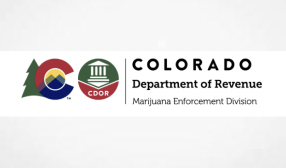It’s good to see grown up discussions beginning to happen in Australia…
SBS News
The Victorian government is looking at whether there’s a better way to manage the use of medicinal cannabis in the workplace, as experts flag concerns around the reliability and lack of nuance in Australia’s zero-tolerance approach to drug testing.
Zero tolerance for cannabis in system
The Victorian parliament is now considering how to address this problem, with Legalise Cannabis Victoria MP David Ettershank saying there needs to be a more nuanced approach to cannabis testing.
“Workers should not be impaired and cause a risk to others, just as cannabis users should not be on the road if they’re impaired and posing a risk to other drivers and pedestrians,” Ettershank told SBS News.
“Clearly in many cases what’s actually happening is that it’s not about health and safety at the workplace, it’s actually imposing a zero-tolerance approach to the presence of THC (the main psychoactive component of cannabis) in people’s systems, irrespective of whether or not they’re impaired. And that’s what we have the big issue with.”
Workplace drug testing is most common in safety-sensitive industries such as mining and transport, where drug impairment could pose a real danger to either the individual or those around them.
But authorities’ strict approach to cannabis intoxication can also affect medicinal users outside the safety-conscious industries, through systems such as roadside drug testing.
Australia’s zero-tolerance legislation regarding cannabis use states that it is an offence to drive while THC is present in one’s blood, oral fluid, or urine.
The problem with illicit drug testing, according to some experts, is that it doesn’t account for the wide window during which a person can test positive for drug intoxication without being impaired.
This is especially true of cannabis, which stays in a person’s system longer than most drugs.
Unreliable tests for cannabis
Danielle McCartney, a postdoctoral research associate at the University of Sydney’s Lambert Initiative for Cannabinoid Therapeutics, explained that oral fluid tests are particularly unreliable. They may not detect THC that’s been ingested in certain forms, such as capsules, or may detect THC in a person’s saliva regardless of whether they recently ingested it or are impaired by its effects.
Blood and urine tests have their own complications, McCartney added, such as inaccurate readings or positive results weeks after use.
“At present, there is there is no perfect system,” she told SBS News.
“The roadside drug tests have limitations, the field sobriety tests or ‘behavioural tests’ also have limitations … What we’re hoping to work towards is a better behavioural test using more tech [and] things like computerised cognitive tasks.
Read more
















